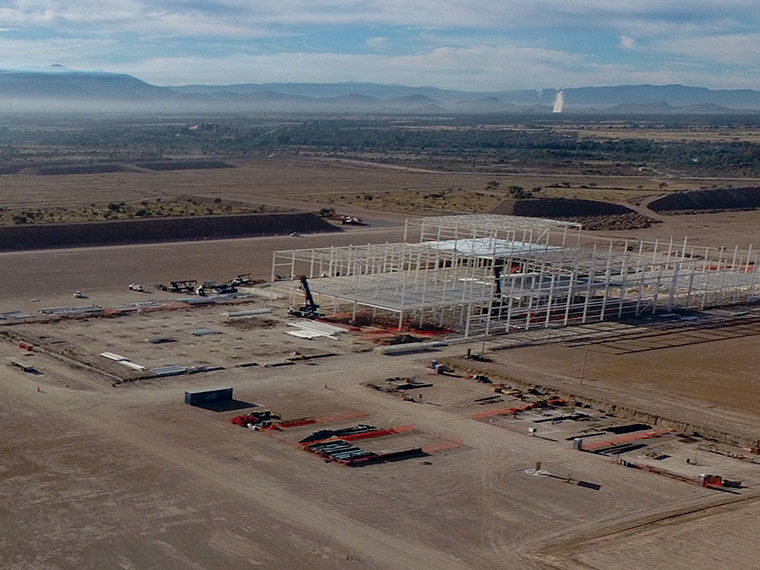VC money for tech pushes up costs for everyone else
Having a tech boom in your backyard has its downsides: Housing prices tend to soar as wealthy tech workers congregate in an area, and established employers find themselves having to raise salaries to retain employees.
Now comes research that quantifies that phenomenon, tracking venture capital invested in 359 U.S. metro areas and correlated changes in entrepreneurship, wages and employment. The study, by Yale’s Doris Kwon and UCLA Anderson’s Olav Sorenson, finds that businesses that depend on sales beyond the region — many manufacturers, or large accounting or consulting firms, for example — drop in numbers, jobs and wages when venture capital pours in.
As demand from a flush tech sector pushes up local costs for capital, talent and resources, “tradable” businesses that sell statewide, nationally and internationally, become less competitive, according to the working paper.
Opt In to the Review Monthly Email Update.
These declines nearly offset concurrent gains in the region’s nontradable businesses, the study finds. Restaurants, convenience stores, hair salons and medical centers, for example, generally do well by tapping the wealth of locals, including employees and businesses in the lucrative high-growth sector. The number of nontradable establishments, as well as jobs and wages in them, rises, according to the study.
The tradable sector of the economy, meanwhile, becomes increasingly concentrated in the boom sector that venture capital is funding, according to the analysis. “Although an expanding high-tech sector may stimulate the demand for local goods and services, it can crowd out other tradable industries within the region, as it consumes human and financial capital,” the study indicates.
The researchers suggest that a large venture capital infusion within a region creates a localized version of The Dutch Disease, a national phenomenon named after difficulties in The Netherlands following natural gas discoveries in the North Sea some 50 years ago. As The Netherlands’ energy sector rapidly grew into an international powerhouse, the value of the Dutch guilder, its currency at the time, soared. The nation’s other exporters lost so much business that their declines more than offset gains from the energy sector.
Although regions don’t have currencies, Kwon and Sorenson conclude that a rise in local costs due to sudden expansion of one sector can similarly hurt existing businesses. “Rising wages and real estate prices increase the cost of doing business. These rising costs prove particularly problematic for the tradable sector because these business must compete with those operating elsewhere, in lower cost places,” they write. They call this problem the “Silicon Valley Syndrome.”
The study reports downsides to the Silicon Valley model beyond its well-documented problem of increasing housing prices beyond affordability for many workers. Overall, a venture capital influx modestly increases the number of businesses and jobs, the researchers find. But it does not change fortunes evenly among workers or businesses, according to their results.
Venture capital for tech appears to exacerbate pay inequality in the broader economy. At the top quarter of the pay scale for nontradable businesses, overall average wages rose about 2% when venture capital doubled, the study finds. The two pay tiers below also saw gains.
Meanwhile, average wages among workers in the lowest pay tier of nontradable businesses decline about 1%, according to the findings. A lot of waiters, hotel and fast food workers fall into this category.
“This combination of the crowding out of the other segments of the tradable sector with rising income inequality appears to be the signature symptoms of the Silicon Valley Syndrome,” the authors write.
The falling average pay in the lowest tier category doesn’t necessarily translate into people’s wages going down. “I don’t think that individuals are actually seeing their own wages decline,” Sorenson explains in an interview. Rather, he says, the decline appears to be caused by the lowest tier category losing its most marketable workers, as the restaurant or grocery store workers take higher paying jobs in tech, for example. “The people that are left in that (lowest pay) category after the boom are people that are systematically less well educated and had lower wages beforehand,” he says.
Other recent research also points to widening pay gaps between workers in high-tech regions, with real wages increasing in high skill jobs but declining for those at the other end of the pay scale. For example, low skilled workers, even within tech, lose buying power amid tech booms because living costs rise, according to a study by UCLA Anderson’s William Yu. On average, other local workers see little change in their average wage growth, he finds.
Featured Faculty
-
Olav Sorenson
Joseph Jacobs Chair in Entrepreneurial Studies; Professor of Strategy; Faculty Research Director, Price Center for Entrepreneurship & Innovation
About the Research
Kwon, D. and Sorenson, O, The Silicon Valley Syndrome. Working paper. Aug. 5, 2019.






